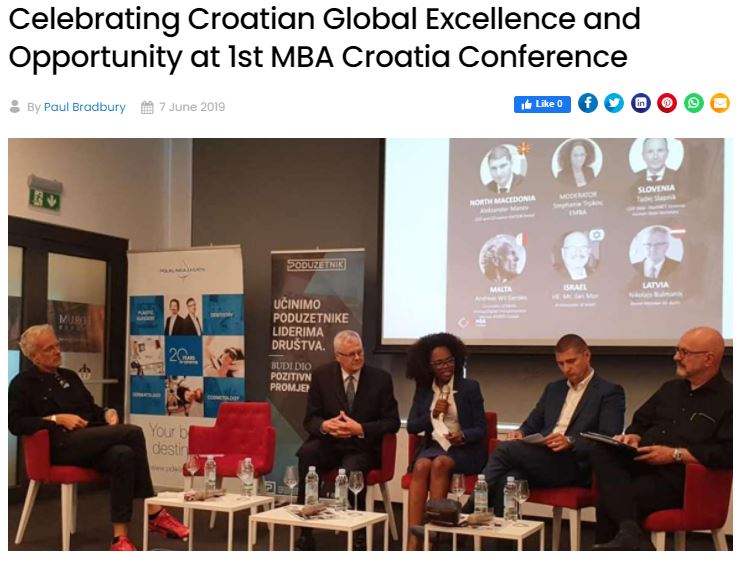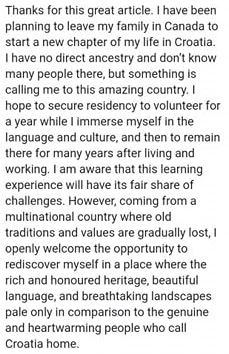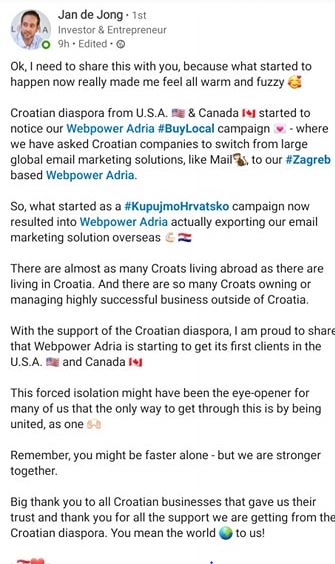Digital Nomad Life in Croatia: Cyndie Burkhardt, from NYC to Global Citizen to Split
August 27, 2020- As the number of digital nomads rises globally, some are choosing to spend some of their time in Croatia. Continuing our TCN series meeting international digital nomads calling Croatia their temporary home. Meet Cyndie Burkhardt, from NYC to Global Citizen to Split.
As recently featured on TCN, the world is projected to have a billion digital nomads by 2035, people from all over the world doing all manner of jobs and business with one thing in common - a flexible, mobile workplace connected to the Internet. If even a fracture of that number becomes a reality, the economic opportunity for countries which can attract these wealth-generating individuals has the potential to dwarf Croatia's current tourism revenues. And there are few countries better placed than Croatia to take advantage. Safe, beautiful, great gourmet scene, top tourist destination, English is widely spoken, well connected to other destinations, and a superb lifestyle.
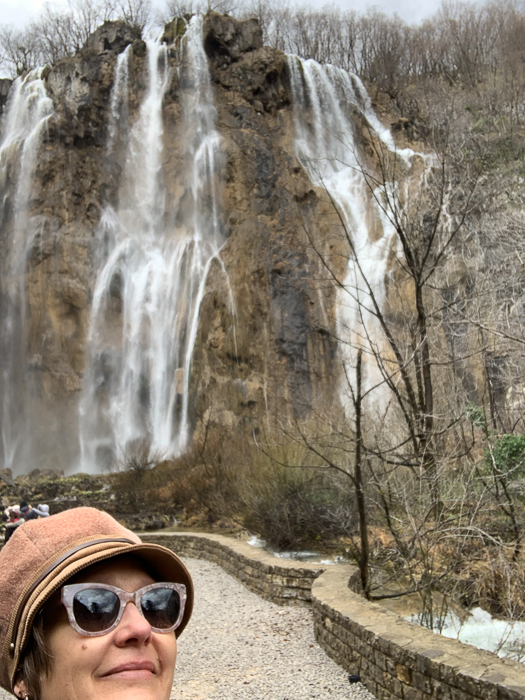
In order to look at the issue in more detail, we have decided to look at some of the digital nomads who have Croatia in their lifestyle plan, and to find out why Croatia, what Croatia offers, and what are the things that countries should be looking out for to take advantage of this economic opportunity. I am very grateful to Tanja Polegubic from Split's waterfront co-working space, Saltwater in Split for her help in connecting me to various digital nomads using her space.
Our next digital nomad in Croatia is Cyndie Burkhardt currently in Split, a long way from home in New York City.
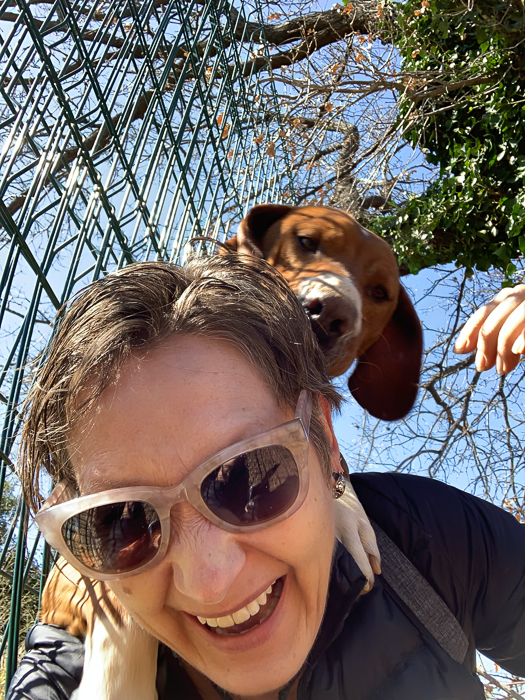
Split has a growing number of digital nomads. Tell us briefly who you are and what you do.
Hi, I'm Cyndie Burkhardt and I’m from New York City, in the U.S. I’m a certified holistic health coach, photographer, and digital storyteller. A year ago I left my home to travel and live in 12 countries in 12 months. My plan was to explore health and wellness in different societies around the world, learning first-hand, from real people. I found diverse healing practices, met a lot of interesting characters, had amazing experiences, and gained a broader perspective on what “health” means. All along, I photographed and wrote about these adventures and created stories that are told through the lens of lifestyle and culture. (The project is on my website.) Then COVID-19 cut my travels short. My journey took a different turn and unfolded in ways I couldn’t have imagined. I arrived in Split on March 1 and a week later travel restrictions, shutdowns, and flight cancellations were being put into effect. I decided to stay because Croatia was very responsive to the pandemic early on and it seemed safe here.
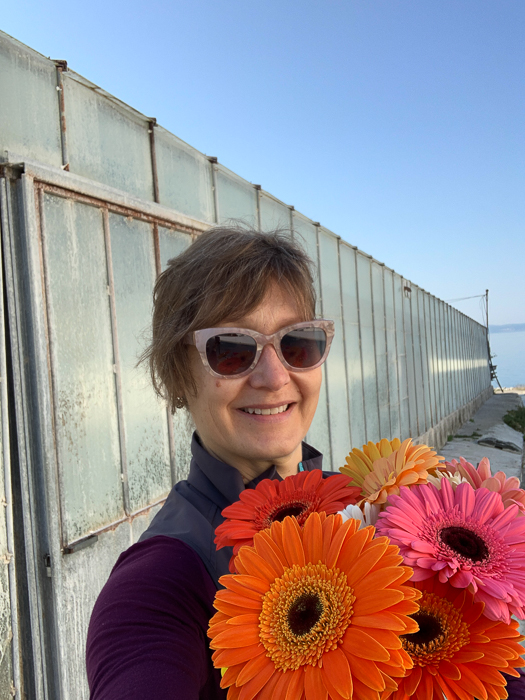
You originally planned to be here for one month and now it’s much longer. How does this affect your work?
First of all, let me say that staying here longer than a month has given me an opportunity to get to know Croatia better, which I’m super excited about. I’m happy for every chance to see more of this beautiful country and meet its people. Being a little more settled, meaning I don’t have to pack up all of my things and race off to the next destination, has helped me create a workflow and a routine. Instead of rushing to complete my project in a few weeks, I’m able to develop it in more detail. I’m looking at long-term work opportunities which are remote and web-based. I would love to start something here, possibly collaborating with local Croatians and expats.
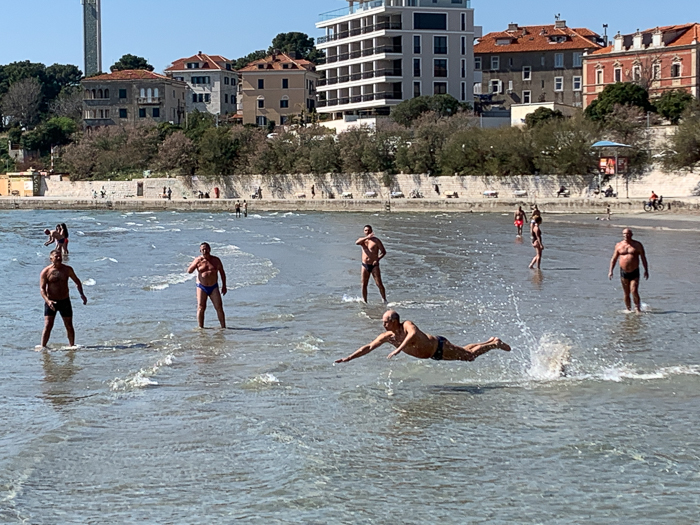
Working from a laptop rather than an office seems like an ideal lifestyle. What are the pros and cons?
I’ve been working remotely on a laptop for several years, sometimes from home and sometimes from an office or workspace. The pros are being in control of my schedule, for the most part, and having the freedom to work in different locations. I have more flexibility to schedule the time I need for self-care, for cooking and eating good food (better than grabbing fast food or eating out, which is typical with office life), getting enough sleep, exercising, and socializing. Being able to structure my days to include things that are important to me while still getting my work done empowers me to work harder when I am on the computer. I’m probably more efficient with work because I can completely manage my own time.
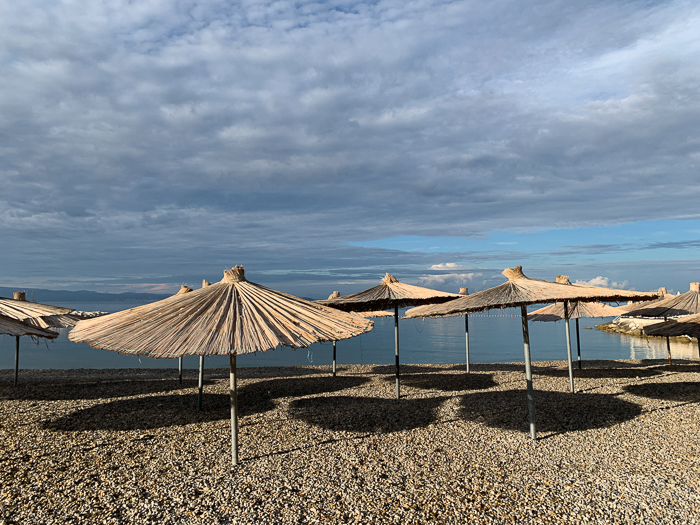
That being said, the cons are the ease of jumping on the computer at any time and sometimes working too much, having to maintain some sort of organized structure to connect with people who work within traditional work hours and also different time zones, and often being isolated and alone. It’s important for me to find time outside, whether that means jumping into a workspace or a café periodically to change my environment and to be around other people. Sometimes it’s just going for a walk to clear my head.
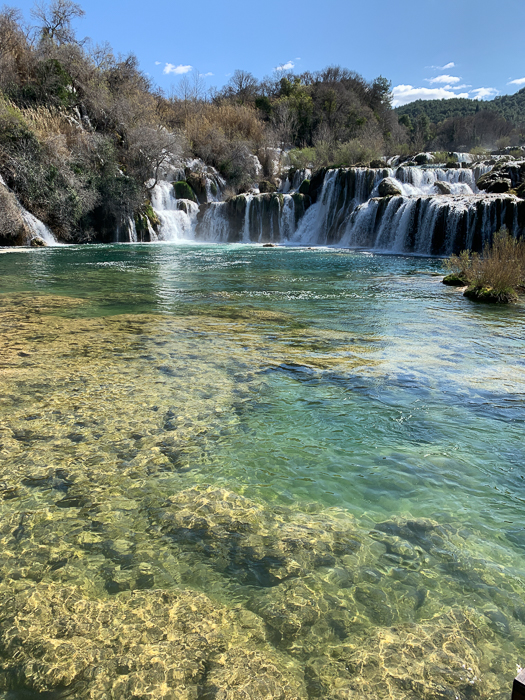
How did you choose Croatia and specifically Split?
I visited Croatia 19 years ago, in Istria, and I loved it. I always wanted to come back and spend more time here and see the entire Dalmatian Coast and the islands. Of course, I had no idea how things would turn out to make my dream come true! When I decided to travel, I went with a company called Remote Year and Split was on their itinerary. The company considered the country and the city safe, well-connected, and wired for a digital working community. It’s got great atmosphere, people, food, and the healthful Mediterranean lifestyle. I also learned about “pomalo.” Things fell into place perfectly.
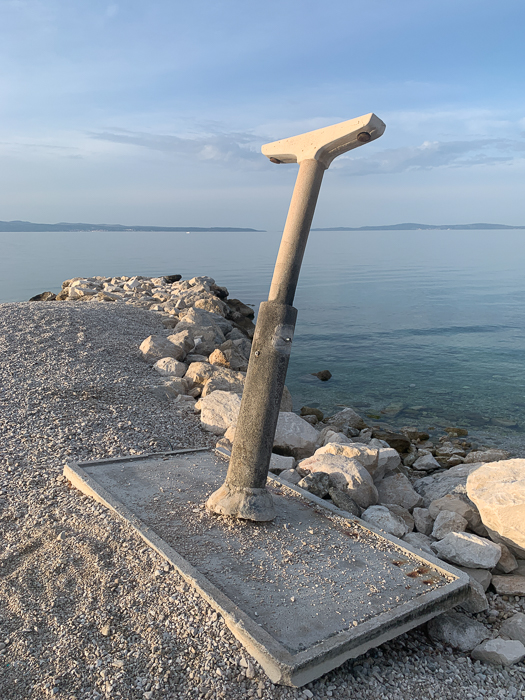
For me personally, discovering the expat community and continuing to meet new friends has been a huge bonus. I grew up on the East Coast of the U.S., in Cape May, New Jersey, at the seashore. It is identical to Split in terms of being a small beach community, the tourism season, the weather (minus your crazy bura and jugo winds!), plus the brilliant sun, salty air, and refreshing water. Being here completely resonates with me and makes me so happy, it’s the best of both worlds for work and lifestyle. I’ve had nothing but great days and experiences here.
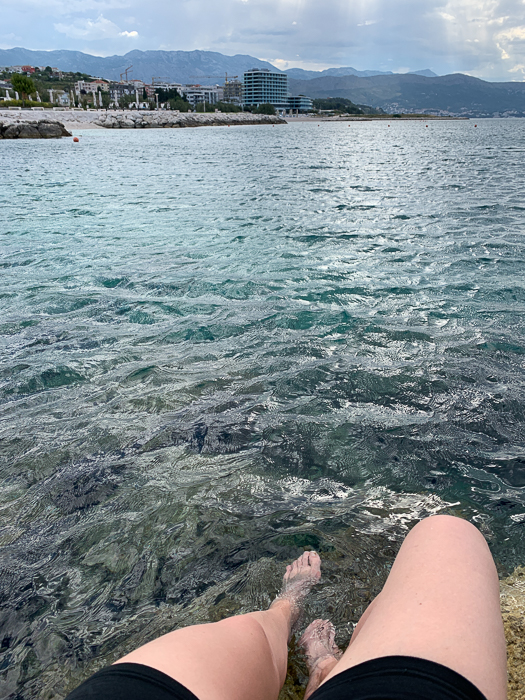
What’s important for a destination to offer to be compatible with a digital nomad lifestyle, apart from good WiFi?
Strong and reliable WiFi is most certainly on top on the list. It’s also important to have thriving co-working space(s) so there’s an environment outside of your apartment to work, socialize, and have a coffee. My experience has been really good and positive in large part because of the people I’ve met and the kindness they’ve shown me. I’ve gotten tips on things to do, places to visit, and recommendations when I’ve needed something. When I travel I’m fully engaged and interested in meeting local people, learning about the culture and history, trying all of the food, and having unique experiences. These are the basics for truly experiencing a place. Here in Split, making new connections and friends, and being able to speak English with people, has made a huge difference in feeling like I’m part of a community. All of this is shaping my impressions and my journey.
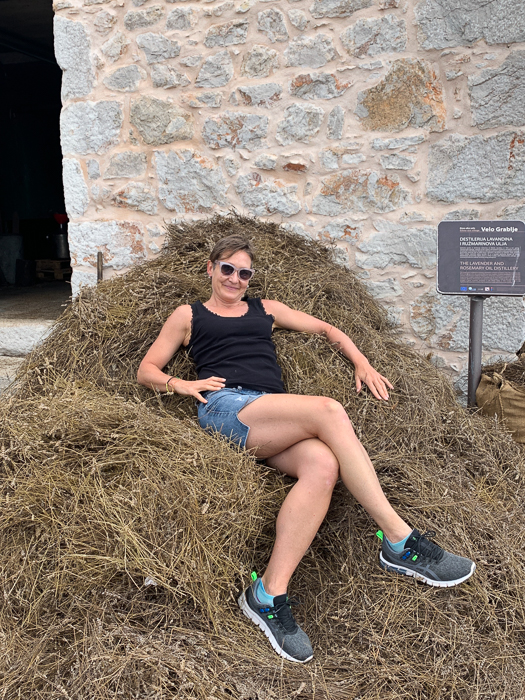
To learn more about Croatia for the digital nomad, check out the Total Croatia Digital Nomad guide.
Are you a digital nomad in Croatia who would like to be featured in this series? Please contact us on This email address is being protected from spambots. You need JavaScript enabled to view it. Subject Nomad
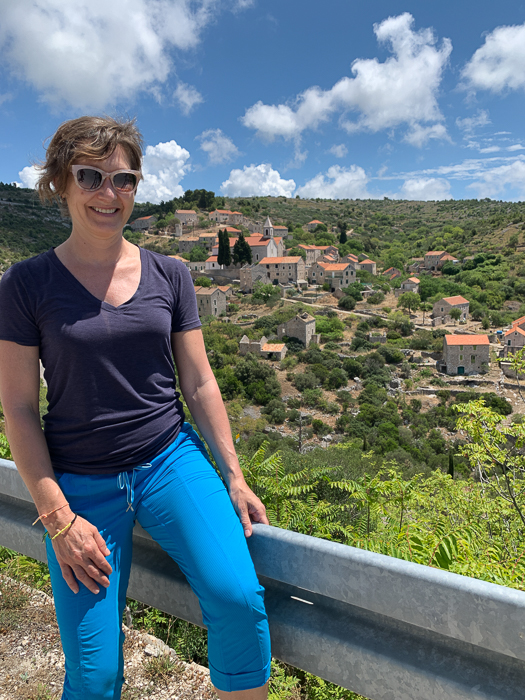
Croatia's Digital Nomad Visa Story: The Expat Contribution & What's Next?
August 27, 2020 - The announcement that the Croatian Government plans to introduce a digital nomad visa for Croatia is wonderful news, but there is so much more to ponder in the story behind it and the direction it could take Croatia.
Everyone is stunned.
The sheer speed of it.
Just 45 days after a Dutch entrepreneur wrote an open letter to Prime Minister Andrej Plenkovic asking for a digital nomad visa for Croatia, the legislative framework for such a visa will be presented by the government today with the full backing of the Prime Minister and his entire cabinet. My understanding is that the visa should be available as early as later this year.
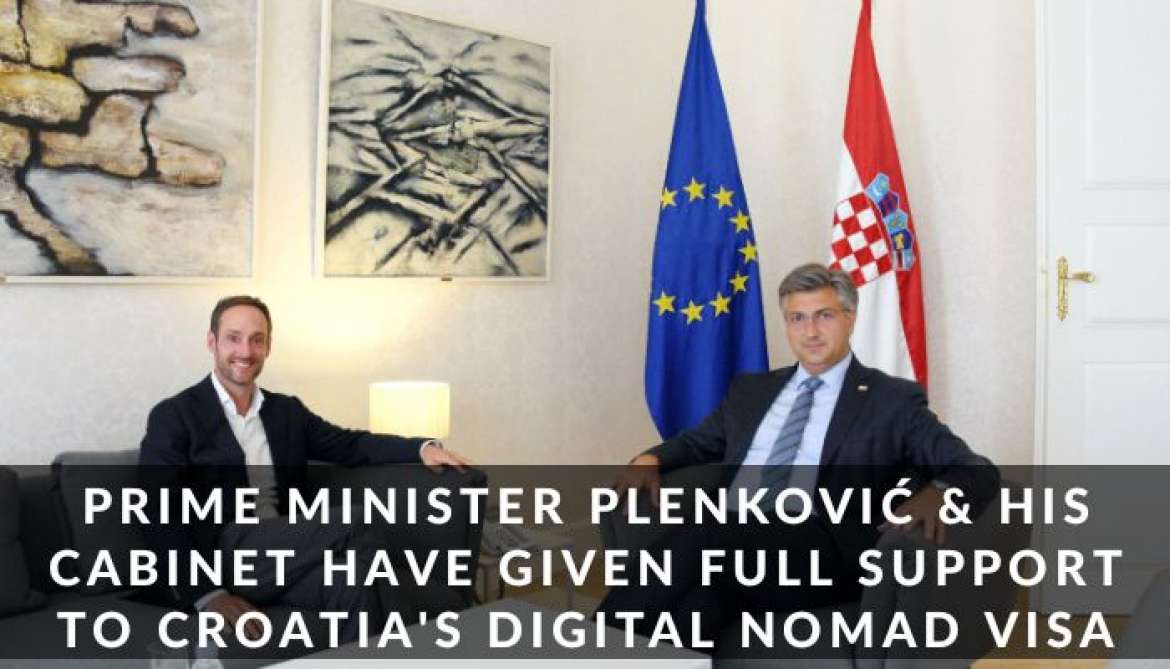
Forty-five days!
In the middle of a pandemic.
In the middle of summer.
In Croatia.
Totally unheard of. A sign - perhaps? - that the first seeds of Croatia 2.0 are beginning to take hold in the corridors of power? Perhaps, perhaps not, but extraordinary nonetheless.
Of all the topics I have written about in Croatia over the last 10 years, none has given me more diverse and stimulating feedback that the nomad topic. With no other media writing about the issue in Croatia, every article on the topic brought new connections of nomads in love with Croatia who would certainly take advantage of such an opportunity. Wealth-creating nomads. Mindset-changing nomads.
But there has also been a steady drip-feeding of feedback from another source - locals. When I first started writing about it over a year ago, many locals dismissed it as some kind of tax dodge or hippie initiative, and few took it seriously. But as the topic refused to go away, and the legacy of corona to advancing the cause of a more digital Croatia kept it in focus, more and more people began to see the opportunity. And the opportunity can be summarised in one paragraph:
Croatia has the best lifestyle in Europe. More and more people work in the same global office these days. It is called the Internet, and the office only has two real variables - connectivity (3G, 4G, 5G) and time zones. Apart from that, the office is essentially the same. When we leave the office, we go home. Many people have that home in the village they are from, surrounded by their friends, but an increasing number want to go home to lifestyle. A swim in the Adriatic before dinner, perhaps? And if Croatia has the best lifestyle in Europe, it is a natural destination for those wealth-creating mindset-changing nomads. Working online in their country of origin, spending and contributing to the community in Croatia. Not all nomads will want to be on the beach in July. We have one case of a digital nomad from Denver, who spent several months in Osijek - a city thousands are emigrating from as there is no opportunity - and found it to be one of the best places she had ever lived. It was safe, affordable, great people, fantastic food, wine and nature.
There will be an estimated 1 billion remote workers by 2035. As the lifestyle capital of Europe and with the proper approach, there is no reason why Croatia could not capture 3% of that market. And these are not visitors for a week on the beach, but longer-term arrivals - a month, three or (with the introduction of the visa) as long as they want. Currently, the only other countries which offer such a visa (and all from this year) are Barbados, Bermuda, Georgia and Estonia. 3% of arrivals all over the country all through the year would represent 30 million people using their spending power to boost the Croatian economy.
It is worth reflecting on the journey and timeline of the Croatian digital nomad visa story, as there are lessons to be learned for other similar initiatives, as well as looking at the considerable role played by expats in bringing this initiative to fruition.
I first became aware of the whole digital nomad opportunity in Spring last year when I met an Australian returnee, Tanja Polugebic, in Split, where she had opened one of the first coworking spaces in Croatia, Saltwater Split. Croatia needs to attract its young and talented diaspora, with all their ideas, and Tanja is a perfect example of someone who has returned, worked really hard and positively touched the mindset of everyone she meets. You can read her TCN interview last year here.
Listening to her vision of how Croatia could be as a digital nomad destination was fascinating, and I really hope that once the visa is introduced, that the government hires her as a consultant in order to maximise the opportunity, as she already sees the opportunities and the pitfalls, some of which she outlined in 10 Ways Croatia Will Be At The Forefront of Countries with a Digital Nomad Visa (DNV).
But it was another expat, German Andrea Wil Gerdes, who raised the issue at a Croatian conference for the first time in June 2019 at the MBA Croatia conference - How to be Globally Competitive from Croatia. His assertion that the Croatian economy could be turned around in 6 months might have sounded fanciful to many, but there was definitely something in the logic, as there had been with Tanja. The debate was moving forward.
And the more I wrote, the more contact I had with those wanting to take advantage of the opportunity, and more locals seeing the opportunity. But the biggest push came from a conversation with another expat, Dutchman Jan de Jong in Split. Due to speak at a tourism conference in May, we brainstormed a few topics for him to think about, including digital nomad tourism. And the rest is history after he presented digital nomad tourism as a strategy for the first time at a conference in Croatia. Timeline May 5 - just 113 days ago.
Six days later, a feature in the national media for the first time, and then on July 11 - just 45 days ago, an open letter to the Prime Minister.
And this is where things get interesting. In the middle of a pandemic and in the middle of the summer, not only was the response to this open letter quick, but wheels were put in motion by several ministries very quickly. A meeting at the Ministry of the Interior was a precursor to a meeting with PM Plenkovic yesterday, whose subsequent tweet of the meeting confirmed that he would be pushing for the visa.
And the timing could not be more perfect, as a debate of small amendments to the Foreigners Act is scheduled for today, and so the digital nomad visa has been added to Article 57, Point 11. With the full support of the cabinet and very little reason to object to it, Croatia should be offering this new service within weeks if all goes well.
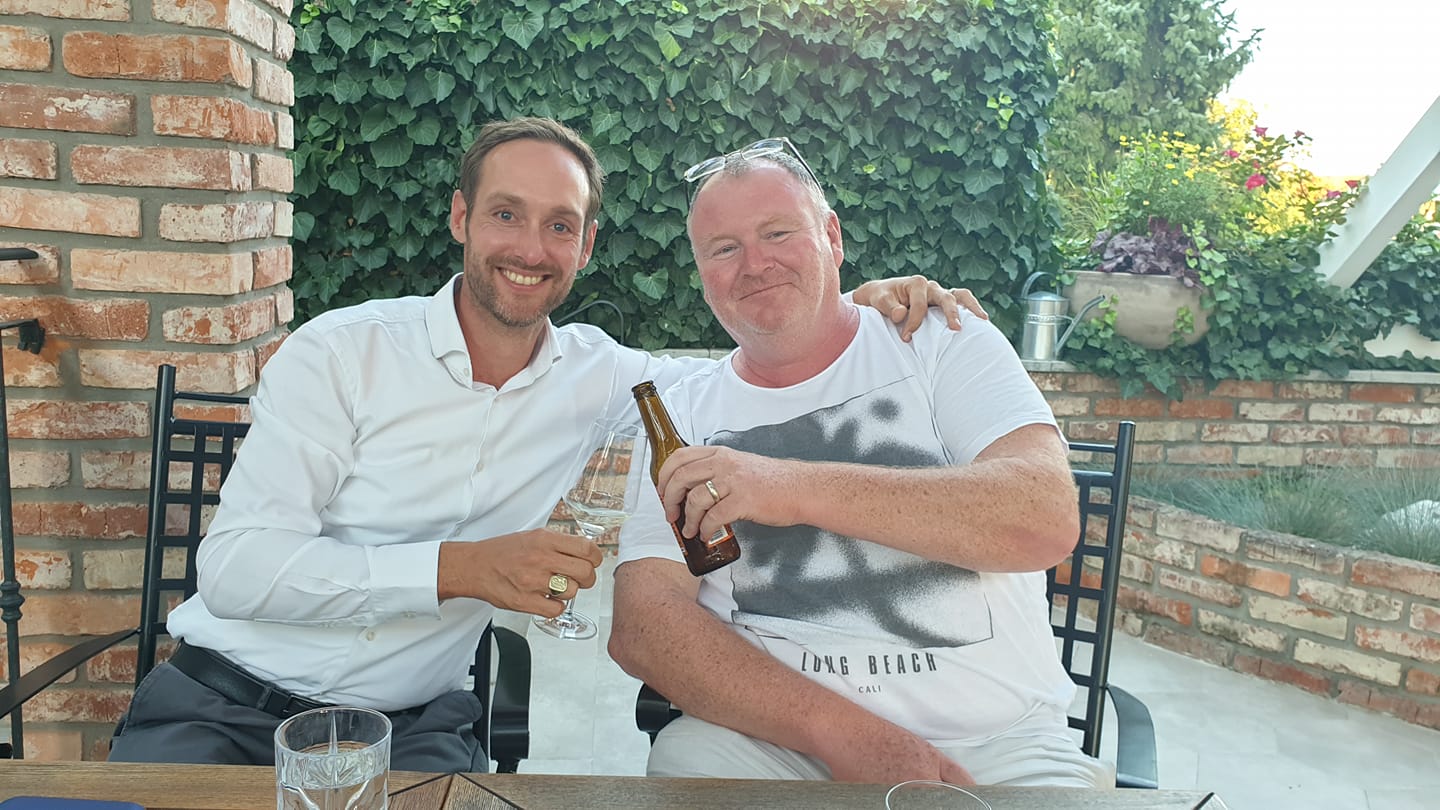
Even more encouraging has been the coordination between the ministries, as I understood from Jan over our celebratory drink last night. Ministries are briefed and engaged, and more meetings will take place in the coming days and weeks to iron out various issues.
It is particularly encouraging that Croatia will be looking to the Estonian model for the implementation of the visa. The more that Croatia looks to Estonia to learn about administration, the better. As the undisputed Kings of Europe for digital administration, Croatia has a lot to learn from the progressive Baltic state, and let's hope that the nomad visa will be the tip of the iceberg as the country moves towards Croatia 2.0.
45 days in the middle of summer during a pandemic. A small and common sense legislation change which immediately puts Croatia at the forefront of this rapidly expanding new industry. A simple and progressive idea which was well-received and acted upon. It is particularly encouraging that ideas from outside are being considered. We all want a better Croatia, and there is no need to reinvent the wheel each time. Estonia deserves huge credit for what they have achieved with their digitalisation journey, and I am sure they would be happier than anyone if others were to adopt it.
And if things can change this quickly, what other low-hanging fruit is out there to take advantage of in a similar way, while boosting the economy without spending too much? Perhaps someone could take a look at the missed opportunity for retired people, especially when compared to Portugal. Like the nomad visa, simple to fix - Lessons from Portugal: Taking Advantage of the Retirement Lifestyle Opportunity.
Many thanks to all involved in pushing the digital nomad visa story for Croatia. The future looks a little brighter today.
For the latest travel info, bookmark our main travel info article, which is updated daily.
Read the Croatian Travel Update in your language - now available in 24 languages
Join the Total Croatia Travel INFO Viber community.
Croatian Digital Nomad Visa: PM Plenkovic and Cabinet Say YES!
August 25, 2020 - A big day for Croatia 2.0, as Prime Minister Andrej Plenkovic and his cabinet express full support for a Croatian digital nomad visa, with the process starting later this week.
I am starting to believe.
A little common sense, a lot of positivity, and the determination of a few good men and women.
Is Croatia 2.0 about to become a reality, at least in part?
The revolution of common sense and future thinking started in Estonia, then continued in Barbados and the Republic of Georgia. And today - it seems - that revolution of positivity and a brighter future, which could revolutionise tourism and the economy has reached Croatia.
The full support of the Prime Minister and his Cabinet for the introduction of the Croatian digital nomad visa.
In SUCH a short space of time, as covered by TCN.
The timeline:
May 5, 2020 - Digital Nomads Enter Croatian Tourism Conference Strategy Debate for 1st Time
May 11, 2020 - Digital Nomad Tourism Featured for 1st Time in Croatian Media
July 11, 2020 - Estonia on the Adriatic? Dutchman Asks PM for Croatian Digital Nomad Visa
July 28, 2020 - Split-Based Dutch Entrepreneur Jan de Jong: Croatia Should Introduce Visas for Digital Nomads
August 15, 2020 - Croatian Digital Nomad Visa One Step Closer? Ministry Meeting Confirmed
August 19, 2020 - Croatian Bureaucracy 2.0: Progress with the Digital Nomad Visa
August 22, 2020 - 5 Reasons Why the Croatian Digital Nomad Visa Should Exist
In the words of Dutch entrepreneur Jan de Jong, a Split resident and successful entrepreneur since 2006 on his LinkedIn profile, the latest stunning update:
****
Thank you Prime Minister Andrej Plenkovic for taking time to meet today and for recognizing this great opportunity for Croatia. ??
It is truly amazing when you see that entrepreneurial ideas and suggestions are being heard and understood by policy makers.
Our Prime Minister told me that the introduction of a digital nomad visa was discussed earlier today during his meeting with his ministers - and that the cabinet fully supported this initiative.
By the end of this week changes to the Foreigners Act shall be proposed to parliament - which basically means that within 2 months after my open letter to our Prime Minister Andrej Plenkovic here on LinkedIn - Croatia has managed to introduce a legal framework that would allow Croatia to start welcoming digital nomads ?
I believe! I really believe in a better Croatia. A Croatia:
✅ Where my children would want to stay.
✅ Where its citizens can enjoy among highest standards of living within Europe.
✅ From where digital nomads would want to work.
Thank you all for your support!
Follow me on #LinkedIn as this story is only getting better.
#LivingTheCroatianDream #entrepreneurship #Croatia #DigitalNomads
Congrats, Jan, and thanks for all your efforts.
Change IS possible.
Croatian Digital Nomad Visa One Step Closer? Ministry Meeting Confirmed
August 15, 2020 - A victory for common sense and progress? Is the Croatian digital nomad visa dream one step closer to reality?
It is one of the simplest pieces of progressive legislation that Croatia could pass to open up an entirely new sector of its economy without spending anything. A piece of legislation that only has positives once enacted, bringing significant revenue to the economy, as well as creating jobs.
A piece of legislation which, combined with Croatia's famed lifestyle, could catapult Croatia to be a market leader in this emerging sector in a very short time. A rapidly expanding sector.
The piece of legislation is the digital nomad visa, and the sector is catering to the increasing number of wealth-creating remote workers looking for lifestyle as their office, and not the same four physical walls. It is predicted that there will be one billion remote workers in the world by 2035, a number which might seem a little conservative in the corona era.
TCN has been writing about the possibility of attracting digital nomads for some time now, including it in last year's Branding Croatia for the Future; 5 Gifts and Trends to Focus On, But it was only when I sat down with a Russian/Ukrainian couple from Munich during their 3-month stay in Jelsa last June that I truly understood the potential. Their boss in Munich only required them to be in the office two months a year, and so they decided to travel for 10 months each year, choosing Jelsa, Sicily, Spain and Portugal for extended stays, then returning to Jelsa the following year for another three months.
Their Jelsa dates were April 1 to June 30, out of the main season. They had a swim before morning coffee on the main square each day. Then they went to work in Munich. Lunch in a local restaurant, back to Munich for the afternoon's business, then another swim and some shopping before dinner. Working in Munich, spending in Jelsa. Taking Croatian lessons and engaging in the community. Rather than a tourist on a cheap package holiday in peak season, a leisurely 3-month stay in which they contributed significantly more financially to Jelsa than an average tourist does. You can read more about their story in How Croatia is Becoming Increasingly Attractive for the Digital Nomad Lifestyle.
And what was the main thing that attracted them? Lifestyle.
Croatia has the best lifestyle in Europe. It is safe, accessible, affordable, offers great authentic experiences, fantastic food and wine, natural beauty, has good infrastructure, is accessible and affordable, with English spoken everywhere. It would not be hard to brand it the Lifestyle Capital of Europe.
The world is changing, and more and more people are working in the same office. It is called the Internet.
There are only two variables in this new global office - connectivity (3G, 4G, 5G) and time zones. Apart from that, our office is the same wherever we are in the world.
When we leave the office, we go home. For many, home is the town or village we grew up in, surrounded by family and friends, but for a growing number, people want to leave their office to lifestyle. How about a swim in the Adriatic before dinner, or a stroll down Stradun?
So, if more and more people are seeking lifestyle as their home, and Croatia offers the best lifestyle in Europe, surely this is a marriage made in heaven?
It should be, and it could be, but...
Enter our old friend Croatian bureaucracy. Immigration laws are such that Americans, for example, cannot stay for more than 3 months at a time. Things are even more complicated for other nationalities. The digital nomads who are coming to Croatia are not just heading for the coast - they are as diverse as the global population itself. We interviewed Julie from Denver, Colorado last year, who was absolutely loving life in Osijek. Osijek, the city in Slavonia which has become the symbol of emigration of Croatian youth in recent years. No jobs, no opportunities. Julie found the city to be one of the best she had lived in - safe, great English, warm people, beautiful city, great nature, plenty to do, cheap - Osijek had it all.
Back to that simple piece of legislation
A digital nomad visa.
What if, bona fide, wealth-creating remote workers were allowed to come to live and work in Croatia through the issuing of a special digital nomad visa? To bring their spending power and positive mindsets to the lifestyle capital of Europe, whose overdependence on traditional tourism (more than 20% of GDP) is slowly devastating its exceptional coast.
The idea is not without precedent. Estonia, the digital champion of Europe, became the first in the world to offer a digital nomad visa. It is no coincidence that Estonia is the most digital country in Europe, as well as being home to the highest number of start-up unicorns per capita. The Bahamas has followed suit, as has the Republic of Georgia, two great lifestyle countries.
Why not Croatia?
It is a question that until recently was being discussed only in cafes among digital nomads, but as the opportunity is becoming more obvious (especially with corona), the voices are now becoming more public. Perhaps none has taken the mantle as strongly as Dutch entrepreneur in Split, Jan de Jong. I have watched Jan's determination and progress with admiration and a big smile since he first became aware of the opportunity, presenting the concept of digital nomad tourism as a tourism strategy for Croatia at a conference back on May 5.
Using his large LinkedIn following as a sounding board, de Jong has published a series of posts advocating for the embracing of the remote worker opportunity for Croatia, including an open letter to Prime Minister Andrej Plenkovic asking for the introduction of the digital nomad visa. You can read the letter in Estonia on the Adriatic? Dutchman Asks PM for Croatian Digital Nomad Visa.
An open letter which received a warm response, as de Jong informed his LinkedIn followers yesterday:
Yes, yes yes!! ?? I got invited to meet with Croatia's Ministry of Internal Affairs (MUP) to further discuss the introduction of Croatia's digital nomad visa! ????
One Saturday morning, I wrote a #LinkedIn post with an open letter to our Prime Minister Andrej Plenkovic.
With your support, this post got over 5.000 ?? and ❤ and over 200.000 views. ?
And then, one week later...I got asked by the Prime Minister's office to send an official email - resulting in getting invited for a meeting with the responsible ministry - Croatia's Ministry of Internal Affairs (MUP)
The meeting is scheduled for Tuesday 18.08.2020. at 15.00 PM.
But there is more good news! I've had a lovely video call with the person who was the driving force for getting Estonia ?? its digital nomad visa - the one and only Karoli Hindriks.
Karoli Hindriks shared her experience with me and is willing to give Vlada Republike Hrvatske (Government of the Republic of Croatia) and me her support to really get this done ?? Thank you dear ?
So, lets stop waiting for things to get better...lets start making things better! ????
Follow me on #LinkedIn as I will keep you up to date on any further developments.
Thank you all so much for your support - ❤ -
#LivingTheCroatianDream #Croatia #digitalnomads
TCN will bring you an update of the meeting once we hear back from Jan. Good luck!
What Happens in Croatia When Mindset Goes from Default Negative to Opportunity Positive?
May 27, 2020 - We are partially conditioned by our environment. So what happens when we exchange Croatia's default negative mindset for opportunity positive?
I had the most amazing day yesterday, and it was far from the main Croatian tourist hot spots.
A small village near Solin, one of the Kastelas and a small village called Vrana.
Although a little tourism was involved, the reason I visited these places on my way from Hvar to Zagreb was to meet three people who lived there and had one thing in common - a positive mindset. And they are also key players in the team being assembled for Croatia 2.0.
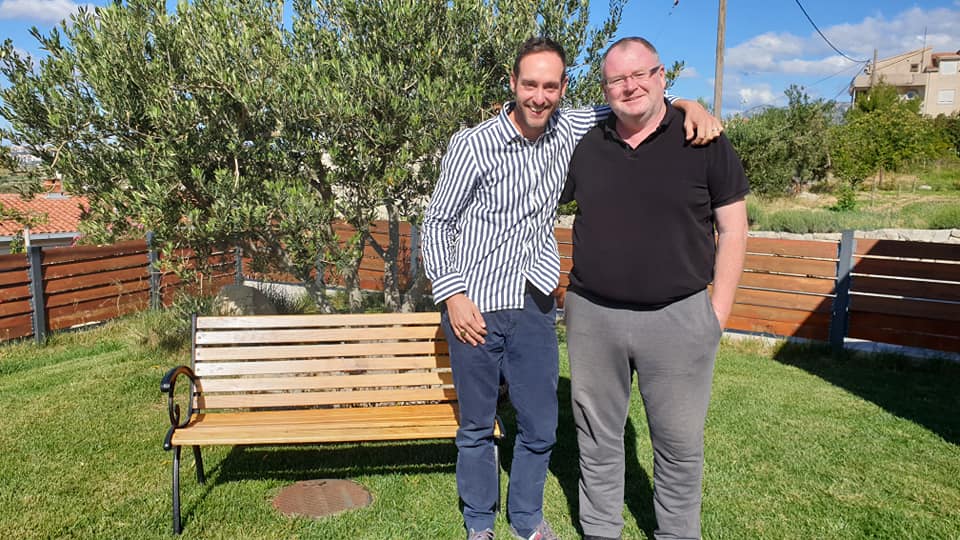
First up, Dutch entrepreneur Jan de Jong, who has been running successful businesses in Croatia since 2006.
Jan has a large following on LinkedIn and he has been in the media a lot recently. A true Croatian patriot despite his Dutch roots, Jan sees opportunity in Croatia whereas others only see emigration. We talked digital nomads for a while and he told me about a couple of ideas he is working on. One thing I like about hanging around with successful people is seeing how easy things can be, as well as being inspired to see how I could implement those ideas in my approach to life here.
Great to see you, Sir, and to finally meet the lovely Slavica.
A great start to the day.
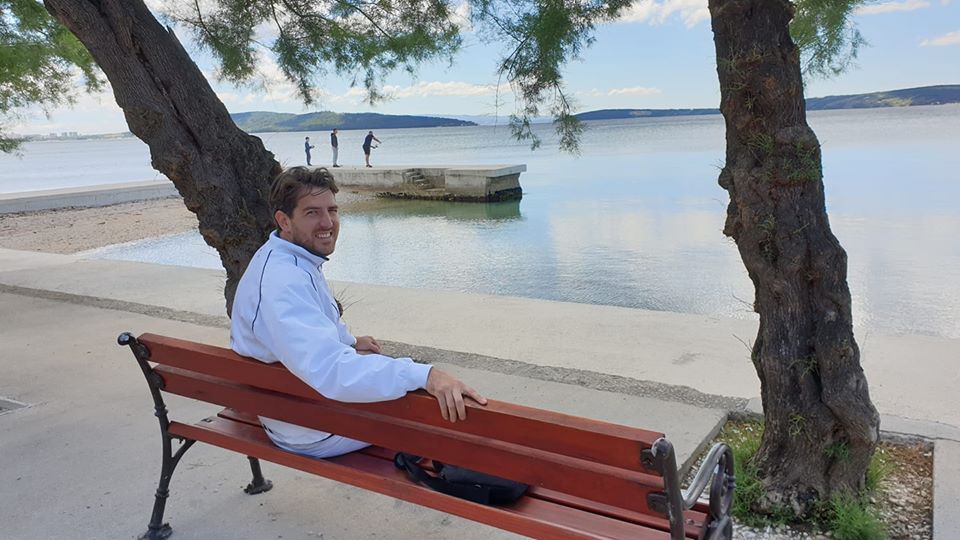
Next up, Making Kastela Bench Tourism Great Again with Feliks Lukas, who is fast becoming one of my favourite people in Croatia. I can't hang out with him too much, as I would spend the day laughing and get nothing done.
Feliks is best known perhaps for bringing the only WTA tennis tournament to an island, even more impressive, outside of peak season. The Bol Open has been a great success, and it was only after spending a little time with his that I realised that this is just a fraction of what Feliks does.
I will write about it soon, but Feliks managed to pull off the most amazing project for Kastela during the lockdown, a true example of creative thinking in the new Croatia 2.0.
Passionate about his native Kastela, Feliks was not going to let me go with just a chat and bench photo shoot, and he took me on a tour of the Kastela I had never seen, including this gem above.
Default negative mindset? In this amazing country? With some stimulating and positive people?
Surely the day could not get any better?
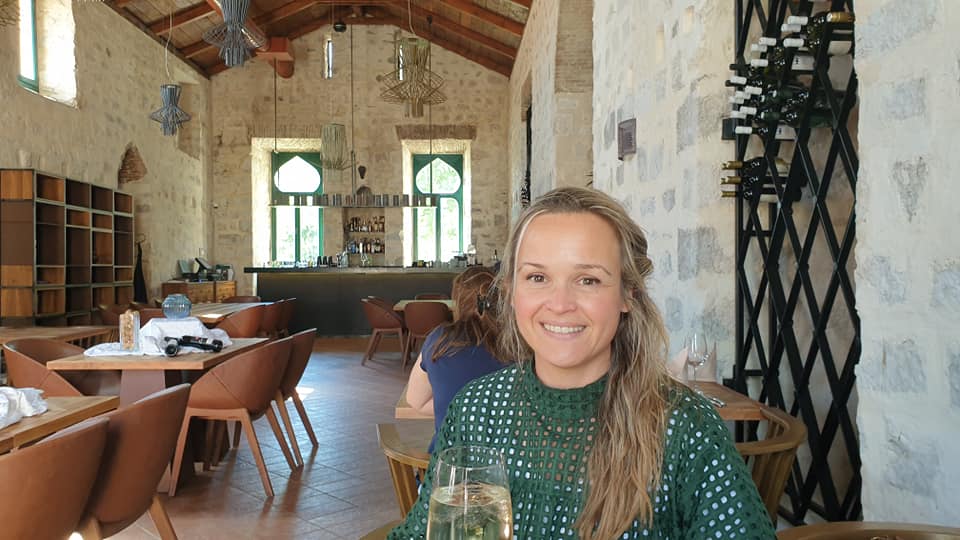
Not only could it get better, but it did.
Next up, a visit to Vrana near Biograd na Moru, to meet the digital nomad pioneer in Croatia (at least I think so), Tanja Polegubic.
A really great exchange of ideas and planned cooperation on some Croatia 2.0 ideas, and then a tour of the wonderful setting we found ourselves in.
The westernmost example of Ottoman architecture in Europe, apparently, meet Maskovica Han. Absolutely stunning! As is its surroundings, right next to Vrana Lake.
Such incredible treasure on the Road Less Travelled in rural Croatia.
And there was plenty of confirmation that I was off the beaten track.
Last year I wrote an article called The 3 Stages of Learning for Foreigners in Croatia: Love, Hate & Nirvana.
I am finally at the nirvana stage with my relationship with Croatia. And the shortcut formula to get there (if you want to save the 15 years it took me to figure things out) is simple - accept the things you cannot change and surround yourself with positive people.
People like Jan, Feliks and Tanja.
That's it.
I guess I might have a more default negative mindset if I spent all day as a keyboard warrior fighting HDZ v SDP battles, ustasa v parizani, di si bio u '91?
But hell, the sun was shining, I thought I would give opportunity positive a try, rather than default negative. And you know what?
It works.
I recently presented a concept called CROMADS: Why You Should Move to Croatia, With or Without Uhljebistan.
I was surprised at the lack of negative comments (for a change) and very encouraged by so many positive comments.
Among the things I said in the article is that I now approach Uhljebistan much as a Norwegian drinker and smoker approaches cigarettes there. Norway is a great country to live in, but man, the fags and booze are expensive. But, he reasons over a 10 euro beer, the cigarette and alcohol tax is worth paying to live in Norway.
I feel the same way about Uhljebistan. Rather than being depressed and frustrated, I accept that one of the downsides of life here - as with expensive beer and cigarettes in Norway - is that I have to pay an 'Uhljeb tax' in order to live in the most beautiful country in Europe, and one with the very best lifestyle.
And you know what? As soon as you get into that mindset, Croatia really is the most incredible place to life. Surrounding yourself with positive people who want to achieve things and make Croatia better place motivates you to do better as well.
So what was the reaction to a little opportunity positive rather than default negative? Some reader comments:
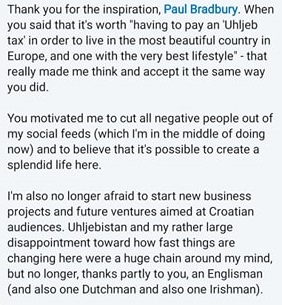
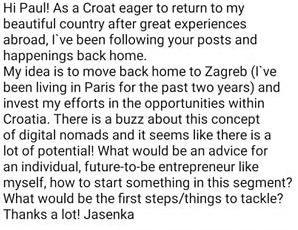
Imagine what might start to happen to the default negative Croatian mindset if we started to change the environment to arguing about Tito and Pavelic in favour of celebrating the MANY success stories? This positivity might just catch on.
There are only two main problems with Croatia in my opinion - the system and the mindset. Pay your uhljeb tax and then bypass the system by creating a Croatia 2.0 reality which will inspire local people to change their mindset as well as creating jobs. Uhljebistan will implode sooner rather than later - the viruses of transparency and technology are impossible to fight if you do not have immunity.
Did I say jobs? That Dutch serial entrepreneur again.
And if Croatia really wanted to build a proper tourism strategy, build it around its two best jewels in the new reality - safety and lifestyle.
If you are interested in a better future for Croatia and would like to get involved in Croatia 2.0, please contact me (email ONLY please, am drowning in messages at the moment), Subject Croatia 2.0 with a short para about you and how you can contribute to This email address is being protected from spambots. You need JavaScript enabled to view it.
CROMADS: Zašto biste se trebali preseliti u Hrvatsku, s ili bez Uhljebistana
22. svibnja 2020. - Dok tisuće napuštaju hrvatsku, zašto biste se vi preselili u Hrvatsku - da, zaista! Zaboravite na Uhljebistan, zaboravite na turizam, ovo su CROMADS.
Svi ćemo se zauvijek sjećati ovih posljednjih nekoliko mjeseci. Toliko nesigurnosti, toliko promjena, toliko vremena da razmislimo o prošlosti i budućnosti. Mislim da smo se svi promijenili barem malo zahvaljujući koroni. Ili smo se promijenili mnogo.
Meni je ovih posljednjih nekoliko mjeseci prošlo kao u magli. Nikad nisam više radio u životu, i tih sat vremena koje sam sam provodio uz Jadran svaku večer nakon što sam cijeli dan pisao o smrtima i bolesti pomoglo me održati normalnim. I dalo mi je jasnoću.
Sada vidim svijet drukčije nego što sam ga vidio prije godinu dana, posebno kad se radi o Hrvatskoj. I ništa mi nije jasnije od toga kako je ova seizmička promjena u našim životima Hrvatsku postavila u savršen položaj da preokrene svoje opadanje broja stanovnika, stvori bogatstvo i pomakne ovu zemlju prema naprijed.
S ili bez Uhljebistana.
Nekad sam mislio da je moguće reformirati sustav ovdje, a moji hrvatski prijatelji smijali su se mojoj naivnosti. I bili su u pravu. Ali, posljednja me godina natjerala da shvatim da je sav trud uložen u nastojanja da se popravi Uhljebistan i provedu reforme zapravo posve uzaludan. Energija je to koja se može bolje usmjeriti u novim, pozitivnim smjerovima, kao što je moj novi koncept - CROMADS (skraćenica od Croatia i nomads, nomadi; nomadi u Hrvatskoj).
Potpuna nesposobnost Ministarstva turizma, koju predvodi ministar-heroj sa svojim sloganima za vrijeme doba korone poput "Hrvatska diše turizam", dok istovremeno nisu u stanju objaviti bilo kakve korisne savjete za putovanja u Hrvatskoj, pokazuje - još jednom - da zaista nema nade. Pa, draže mi je, umjesto da nastojim popraviti Kraljevstvo slučajnog turizma, ismijavati ih i igrnorirati, na kraju ih učiniti besmislenima i nebitnima.
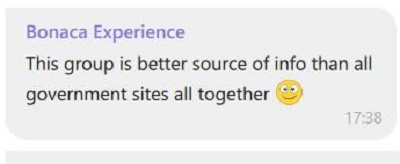
Pokrenuli smo zajednicu na Viberu, nazvanu Total Croatia Travel INFO prije nekoliko dana, saznati više i priključiti se možete ovdje. Prošlo je 8 dana otkad me zamjenik ministra turizma pozvao dapošaljem pitanja Ministarstvu, na koja će oni odgovoriti pa ću ja stvoriti stranicu koja će pomoći onima koji stvaraju 20 % hrvatskog BNP-a - turistima. I 8 dana kasnije dobio sam tišinu. Shvatio sam da ne odgovaraju medijima, stoga je za turiste još manja šansa da će dobiti odgovor, pa smo pokrenuli Viber community s namjerom da sve podatke stavimo na jedno mjesto (ako vas to zanima, pospremite link na ovaj naš članak u kojem je sve objašnjeno). Dopuštamo pitanja (i bilo ih je MNOGO), te odgovaramo koliko možemo, a one na čija pitanja ne možemo odgovoriti upućujemo na prave adrese e-maila. Reakcije su uglavnom vrlo pozitivne i posebno mi se svidio ovaj komentar koji sam primio od Bonaca Experience - hvala vam! Pridružite nam se (trebat će vam aplikacija Viber).
Jedan od ključeva uživanja u boljem životu u Hrvatskoj je toliko jednostavan, a s druge strane toliko teško ostvariv
Mindset.
Stanje duha.
Prije par godina, u [i]fičru[/i] napravljenom za britansko veleposlanstvo u Zagrebu, objasnio sam sve što bi strani investitor trebao znati o Dalmaciji u jednoj rečenici, za koju mi je trebalo 12 godina da je shvatim, ali čim je shvatite i prihvatite, život u Dalmaciji postane gotovo savršen. A ako je ne možete prihvatiti odmah, ili ćete je prihvatiti u budućnosti ili će vam se život pretvoriti u frustraciju. A rečenica je...
Nemojte pokušavati promijeniti Dalmaciju, ali očekujte da će Dalmacija promijeniti vas.
Stanje duha važno je i kad se obraćate Moćnoj Državi Uhljebistan. Umjesto da se nervirate i osjećate frustriranima, kako sam se ja osjećao godinana, ovih dana se osjećam kao stanovnik Osla koji mnogo pije i puši dok se obraća Norveškoj i životu u njoj. Ovo je divna zemlja, ali, čovječe, cigarete i piće su zaista skupi. Ali, njegovo je razmišljanje da su pivo od preko 10 eura, te porez na cigarete i alkohol vrijedni plaćanja da bi se živjelo u Norveškoj.
Tako nekako ja doživljavam Uhljebistan. Umjesto da sam deprimiran i frustriran, prihvaćam da je jedna od negativnih stvari oko života ovdje - slično kao cijena piva i cigareta u Norveškoj - činjenica da moram plaćati porez na uhljebe kako bi mogao živjeti u jednoj od najljepših zemalja u Europi, koje imaju jedan od najboljih stilova života.
I znate što? Čim se ubacite u taj način razmišljanja, samo malo toga "nemojte pokušavati mijenjati Dalmaciju, ali očekujte da će Dalmacija promijeniti vas", sva negativnost nestaje. Okružite se sa što je više moguće pozitivnih i dinamičnih ljudi ovdje, koncentrirajte se na stvaranje Hrvatske 2.0 i bolje budućnosti za našu djecu. Faks uređaji Uhljebistana 2.0 su na izdisaju, postaju svakim danom sve manje relevantni.
A sada, razgovarajmo o CROMADS (Kromadima), i zašto su oni hrvatska budućnost - i to posebno sjajna budućnost!
Radi se o konceptu koji sam prvi put predstavio na Business Cafe Online događaju prošli tjedan, gdje sam bio jedan od gostiju uz legendu Jana de Jonga. Ništa vezano za Cromade nije posebno komplicirano, niti je skupo implementirati taj koncept. Zahtijeva promjenu samo jedne jedine stvari.
Stanja duha.
Cromads - za početak.
Da bih taj koncept najbolje objasnio, trebate zaboraviti na Hrvatsku u kojoj turizam ostvaruje 20 % BDP-a, pritom polagano uništavajući njenu obalu. Trebate zaboraviti i na Uhljebistan za sada. Vratit ćemo ideje Moćne Države Uhljebistana nešto kasnije, kada dođemo do tri različita scenarija - Cromads koji žive s, bez ili uz naše uhljebske prijatelje.
Koncentrirajmo se na to što je Hrvatska bez Uhljebistana: sigurna, prirodom prekrasna zemlja u EU, cjenovno prihvatljiva i lako dostupna, sa sjajnom lokalnom hranom i vinom, stvarima koje treba vidjeti i doživjeti, infrastrukturom i internetom. I životnim stilom kojem cijeli svijet zavidi. Sjajna zemlja za provesti život. Zapamtite ovu misao.
Živimo u svakim danom sve više digitalnom svijetu, i činjenica je da nas mnogo (a uskoro će nas biti većina!) radi u istom uredu.
Taj se ured zove internet.
Samo su dvije varijable u našem globalnom uredu - povezivost (3G, 4G ili 5G) i vremenske zone. Osim toga, slobodni smo šetati svojim uredom i odabrati radno mjesto koje nam najbolje odgovara.
Kad odemo iz ureda, odlazimo doma.
Kad sam prvi put pričao Business Cafeu, prije godinu dana u Zagrebu, trebalo mi je 90 kilometara da dođem do njih iz Varaždina, 180 kilometara za cijeli put.
Prošli sam mjesec primio svoj mjesečni izvještaj od Google Mapsa, u kojem me obavještavaju koliko sam zemalja obišao i kilometara prošao u travnju 2020.
Hodao sam 100 kilometara, a vozio se samo 65! Dakle, taj put da do Business Cafea prošle godine bio je trostruko duži od ukupne vožnje koju sam obavio u travnju 2020.
A opet, sjedio sam u Jelsi u krevetu s čašom vina, drugi sam se put pojavio na Business Cafeu, ali ovaj put me gledalo mnogo više ljudi nego što bi se moglo ugurati u sobu u Zagrebu.
Vlasnica BC-a, Kristina, mogla je biti u Dublinu, Dubaiju ili Durbanu. Prošle godine, morala je biti fizički u Zagrebu, ali to se promijenilo. I kako online školovanje postaje sve uvjerljivije, stupovi koji nas vezuju za određenu lokaciju sve više postaju uklonjeni. Naravno, neki od nas htjet će ostati u mjestu gdje su odrasli, blizu svojih obitelji. Ali mnogi će poželjeti napustiti ured i domom zvati neku lifestyle destinaciju.
Mjesto poput Hrvatske.
Zamislite, dug dan u uredu i zatvorite računalo i tražite što će vas opustiti. Ugodno kupanje u Jadranu prije večere, možda? Šetnja kroz mjesta koja je zaštitio UNESCO, poput Splita, Trogira ili Dubrovnika? Ili planinarenje ili šetnja kroz prekrasnu zemlju čijih je 10 % teritorija posvećeno nacionalnim parkovima ili parkovima prirode?
Izbor je vaš. Destinacija je sigurna, cjenovno prihvatljiva, lako dostupna, većina govori engleski jezik, hrana i vino su izvrsni, ima mnogo toga što biste trebali vidjeti i doživjeti. A jesam li spomenuo taj stil života?
Prije pandemije korone, globalna su predviđanja bila da će na svijetu biti cijela milijarda digitalnih nomada do 2035. godine. Događaji posljednjih nekoliko mjeseci samo su ubrzali taj trend, pretpostavljam.
Za razliku od turista, digitalne nomade privlači stil života. To znači i duži ostanak, više integracije u zajednicu, prilika da se uključe u život, potaknu i nešto u nju vrate. Kad ovdje govorim o lokalnim nomadima, lokalne me oči blijedo gledaju jer pogrešno misle da govorim isključivo o blogerima i influencerima koji se bave Splitom i Dubrovnikom.
A onda im ispričam o Julie iz Denvera, pa budu šokirani. U vrijeme masovnog bježanja iz Slavonije, postoji žena koja ne samo da se preselila u Osijek na nekoliko mjeseci, nego je time bila oduševljena. Sigurno, pristupačno, prekrasno, sjajno lokalno stanovništvo i priroda, govori se engleski jezik. Čemu bi čovjek mogao prigovoriti?
Ne tjera li vas to na razmišljanje, što ako?
Zašto ne biste cijeli dan radili u uredu, a zatim prešli u svoj lifestyle raj - otprilike bilo gdje u Hrvatskoj?
A nisam još ni spomenuo hranu. Ni vino.
Sjajnu lokalno proizvedenu hranu, sa sastojcima koji nisu dostupni kroz cijelu godinu u nekom bezukusnom obliku, nego samo kad im je sezona. A okus i svježina je fantastična. Kao što je i 130 autohtonih sorti vina, uključujući originalni zinfandel.
Kako bi bilo kad bi moja hrana putovala onoliko koliko ja putujem? Sjajni lokalni proizvodi. Lokalna ekonomija.
Posao u globalnom uredu, dom u glavnom gradu stila života Europe: gdje da se prijavim? Vrijeme je da porazgovaramo o slonu u našoj dnevnoj sobi.
Ovo su scenariji za Cromade:
Scenarij 1: Uhljebistan u potpunosti ignorira priliku s digitalnim nomadima.
Židot ide dalje, kako je i prije išao. Nešto mudrog marketinga privuče nešto više digitalnih nomada nego što ih je i do sad dolazilo. A oni ZAISTA dolaze. Bez reformi pravila o imigraciji, njihov će boravak biti ograničen na tri mjeseca u većini slučajeva. Ali, digitalni nomadi su pokretna družina, doći će na tri mjeseca, trošit će u barovima, restoranima, dućanima. Svi ti neizravni porezi bit će samo naznaka onoga što bi moglo biti. Solidan prihod.
Scenarij 2: Uhljebistan odlučuje uključiti se.
Budući da je većina uobičajenih pritoka novca presušila, Uhljebistan odlučuje da se treba uključiti. Učinimo jednostavnijim da digitalni nomadi ostanu duže, na taj način nama će doći više novca. Nekima se životni stil toliko svidi da će pokrenuti svoje tvrtke, zaposliti lokalno stanovništvo, a svi će oni zajedno plaćati ogromne poreze Moćnoj Državi Uhljebistanu.
Scenarij 3: Vive La Revolution!
Stvari u Hrvatskoj postaju dovoljno loše da se ljudi odluče pobuniti. Nacija koja može na ulice Zagreba dovesti 550.000 ljudi koji slave svoje nogometne junake sa Svjetskog prvenstva i koja može Olivera sa stilom ispratiti u Vela Luku pokreće protest sa sličnom strašću. To završava tako da Uhljebistan biva ukinut.
Što nam ostaje? Globalni ured, zaposlenici iz cijelog svijeta koji sudjeluju u lokalnom gospodarstvu, inspiriraju način razmišljanja u sljedećoj generaciji lokalnog stanovništva. A kako više nema Uhljebistana, progresivno oporezivanje približava te tvrtke i njihove potencijalne zaposlenike.
I dok se nadamo scenariju 3, realniji je scenario 1 - što je i dalje OK!
Radite u globalnom uredu, uživajte u glavnom gradu stila života Europe, s ili bez Uhljebistana.
Zaboravite na pronalaženje onih 20 milijuna turista koji polako uništavaju obalu.
Kupujte lokalno, radite digitalno, mijenjajte način razmišljanja. Hrvatska je zaista fantastično mjesto za život. Mjesto u kojem bi lokalno stanovništvo zaista uživalo na svojoj obali, samo kad bi si to mogli priuštiti.
CROMADS: Why You Should Move to Croatia, With or Without Uhljebistan
May 20, 2020 - With thousands emigrating, why you should move to Croatia - yes really! Forget Uhljebistan, forget tourism, meet CROMADS.
These last few months will be remembered forever by us all. So much uncertainty, so much change, so much time for reflection on the past and the future. I think most of us changed a little thanks to corona. Or maybe changed a lot.
For me, the last few months have been a blur. I have never worked harder in my life, and that precious hour alone by the Adriatic after reporting on death all day helped keep me sane. And gave me clarity.
I now see the world very differently than I did a year ago, especially when it comes to Croatia. And nothing was clearer to me than how this seismic change in our daily lives has positioned Croatia perfectly to reverse its population decline, generate wealth, and move this country forward.
With or without Uhljebistan.
I used to think it was possible to reform the system here, and my Croatian friends would laugh at my naivety. And they were right. But this last year has made me realise that all that effort in trying to improve Uhljebistan and bring reform is wasted effort. Effort which can be better directed into new, positive directions such as my new CROMADS concept.
The complete ineptitude of the Ministry of Tourism, led by our heroic minister with his corona-era slogans such as Croatia Breathes Tourism, while being completely incapable of publishing any useful travel advice whatsoever, shows - once again - that there really is no hope. Rather than try and improve the Kingdom of Accidental Tourism, it is better to mock it and ignore it, then to render it meaningless and irrelevant.

We launched a Viber Community called Total Croatia Travel INFO less than 48 hours ago (you can learn more and join here). It is now 8 days since the Deputy Minister of Tourism invited me to send questions to the ministry which they would answer so that a helpful information page could be created to help the people who generate 20% of Croatia's GDP - the tourists. Eight days later - silence. I realised that if they are not replying to the media, then there is not much hope for tourists, and so we started the Viber community as a way to put information into one place (bookmark this link to our master article if interested), We are allowing questions (and there have been MANY), and we are answering what we can and directing people to the correct email address where we do not have the information. Feedback has been broadly very positive, and I really liked this comment from Bonaca Experience - thank you! Join us (you will need to download the Viber app).
One of the keys to enjoying a better life in Croatia is something so simple, and yet so hard to get right.
Mindset.
A couple of years ago, in the above feature for the British Embassy in Zagreb, I explained everything a foreign investor needed to know about Dalmatia in a sentence, a sentence that had taken me 12 years to figure out, but if one can understand and embrace its meaning, life in Dalmatia is close to perfect. And if you can't embrace it initially, you either will at some point in the future or face a life of frustration. And the sentence is...
Do not try and change Dalmatia, but expect Dalmatia to change you.
And mindset is also important when one approaches the Mighty State of Uhljebistan. Rather than get frustrated by it as I did for years, I approach it these days as a Norwegian resident of Oslo who drinks and smokes a lot approaches life in Norway. It is a great country to live in, but man, the fags and booze are expensive. But, he reasons over a 10 euro beer, the cigarette and alcohol tax is worth paying to live in Norway.
I feel the same way about Uhljebistan. Rather than being depressed and frustrated, I accept that one of the downsides of life here - as with expensive beer and cigarettes in Norway - is that I have to pay an 'Uhljeb tax' in order to live in the most beautiful country in Europe, and one with the very best lifestyle.
And you know what? As soon as you get into that mindset - a little like Do not try and change Dalmatia, but expect Dalmatia to change you - all the negativity goes away. Surround yourself with the many positive and dynamic people here and focus on creating Croatia 2.0 and a better future for our children. The fax machines of Uhljebistan 2.0 are on borrowed time and increasingly irrelevant.
Now let's talk CROMADS, and why this is the future of Croatia - and a very bright future indeed.
It is a concept I presented first with Business Cafe Online last week, where I was a guest with the legend that is Jan de Jong. There is nothing terribly complicated about CROMADS, nor does it cost much to implement. In fact, it requires only one thing to change.
Mindset.
Let's begin with CROMADS.
In order to explain it best, I need you to forget that Croatia is a tourism country with 20% of its GDP slowly destroying its coast. And I need you to forget about Uhljebistan for now. We will bring in the Mighty State of Uhljebistan later, with three scenarios - CROMADS with, without and coexisting with our uhljebby friends.
Let's focus on what Croatia is without Uhljebistan: a safe, naturally beautiful country in the EU, affordable and accessible, with great local food and wine, things to do and see, good infrastructure and Internet. And a a lifestyle that is the envy of the world. A great place to live. Hold that thought.
We live in an increasingly digitalised world, and it is a fact of life that a large minority (and possibly soon to be the majority) of us all work in the same office.
It is called the Internet.
There are only two real variables to our global office - connectivity (3G, 4G or 5G) and time zones. Apart from that we are free to roam our office and choose a seat and view that suits us.
When we leave the office, we go home.
I first spoke at Business Cafe a year ago in Zagreb. In order to get there, I drove from Varazdin, 90km each way. Round trip of 180km.
Last week I got my monthly report from Google Maps to tell me how many countries I had visited in April 2020, and how many kilomotres I had travelled.
I had walked 100 kilometres and driven just 65 km. So that drive to Business Cafe last year was three times the distance I drove for the entire month of April.
And here I was, sitting in bed in Jelsa with a glass of wine, making my second appearance at Business Cafe, but this time with a lot more people than could fit in the room in Zagreb.
BC owner Kristina could have been in Dublin, Dubai or Durban. Last year, she had to physically be in Zagreb, but no longer. And with online schooling looking increasingly likely sooner rather than later, suddenly the pillars which chain ourselves to our locations are removed. Sure, some will want to stay in the place where they grew up, close to family. But there will be many who would love to leave the office and go home to an amazing lifestyle destination.
Somewhere like Croatia.
Imagine a long day in the office and you close down and look to de-stress. A swim in the Adriatic before dinner perhaps? A little stroll through a UNESCO World Heritage Site such as the old towns of Split, Trogir and Dubrovnik? Or perhaps a hike in a stunning country which has 10% of its surface given over to national and nature parks?
The choice is yours. The destination is safe, affordable, accessible, English is widely-spoken, great food and wine, lots to see and do. Did I mention the lifestyle?
Before the corona pandemic, the prediction was one BILLION digital nomads by 2035. The events of the last few months has probably accelerated that number's arrival.
Unlike a tourist, a digital nomad usually comes for the lifestyle. Which means a longer stay, more integration in the community, a chance to engage, inspire and put something back. When I talk digital nomads here, local eyes glaze over, as they falsely assume that I am talking exclusively about bloggers and influencers in Split and Dubrovnik.
And then when I tell them about Julie from Denver, they are shocked. In an age of mass emigration from Slavonia, here was a woman who not only moved to Osijek for several months, but absolutely loved it. Safe, affordable, beautiful, great locals and nature, English spoken. What was not to like?
Doesn't it make you think? What if?
Why not work all day in the office, then come home to your lifestyle paradise - pretty much anywhere in Croatia.
I haven't told you about the food.
Or the wine.
Great locally produced food, with ingredients which are not available all year in some bland format, but only in season. And the taste and freshness is magnificent. As are the 130 indigenous grape varieties of Croatia, including the original Zinfandel.
What if my food also travelled about as much as I did? Great fresh local produce. A local economy.
A job in the global office, a home in the lifestyle capital of Europe, where do I sign up? It is time to talk to the elephant in the room.
There are three scenarios with CROMADS:
Scenario 1: Uhljebistan ignores the digital nomad opportunity completely.
Life goes on before. Some clever marketing brings in more digital nomads than are currently coming. And they ARE coming. Without reform of the immigration rules, stays will be limited to three months in many cases. But digital nomads are a mobile bunch. They will come for 3 months, spend in the bars, restaurants, shops. Those indirect taxes will be a little taster of what might have been. A good solid income.
Scenario 2: Uhljebistan decides to engage.
With its usual cashflow channels drying up, Uhljebistan decides to engage. Let's make it easier for digital nomads to stay longer, and there is more money for us. Some love the lifestyle so much that they start businesses, employ locals, all of whom pay a hefty tribute to the Mighty State of Uhljebistan.
Scenario 3: Vive La Revolution!
Things are bad enough in Croatia that the people rise up. The nation that can get 550,000 people on the streets of Zagreb to celebrate its World Cup heroes and send off beloved singer Oliver in style to Vela Luka starts to protest with similar passion. And Uhljebistan is overthrown.
What are we left with? A global office, employees from all over the globe contributing to the local economy, inspiring the mindset of the local next generation. And with no more Uhljebistan, a progressive tax incentive to bring those businesses closer to their employees.
And while we hope for Scenario 3, the reality is probably Scenario 1, which is still ok.
Work in the office, relax in the lifestyle capital of Europe, with or without Uhljebistan.
Forget trying to find those 20 million tourists which are slowly devastating the coast.
Buy local, go digital, change mindset. Croatia really is the most amazing place to live. A place where the locals would be able to enjoy their coast at an affordable price.


